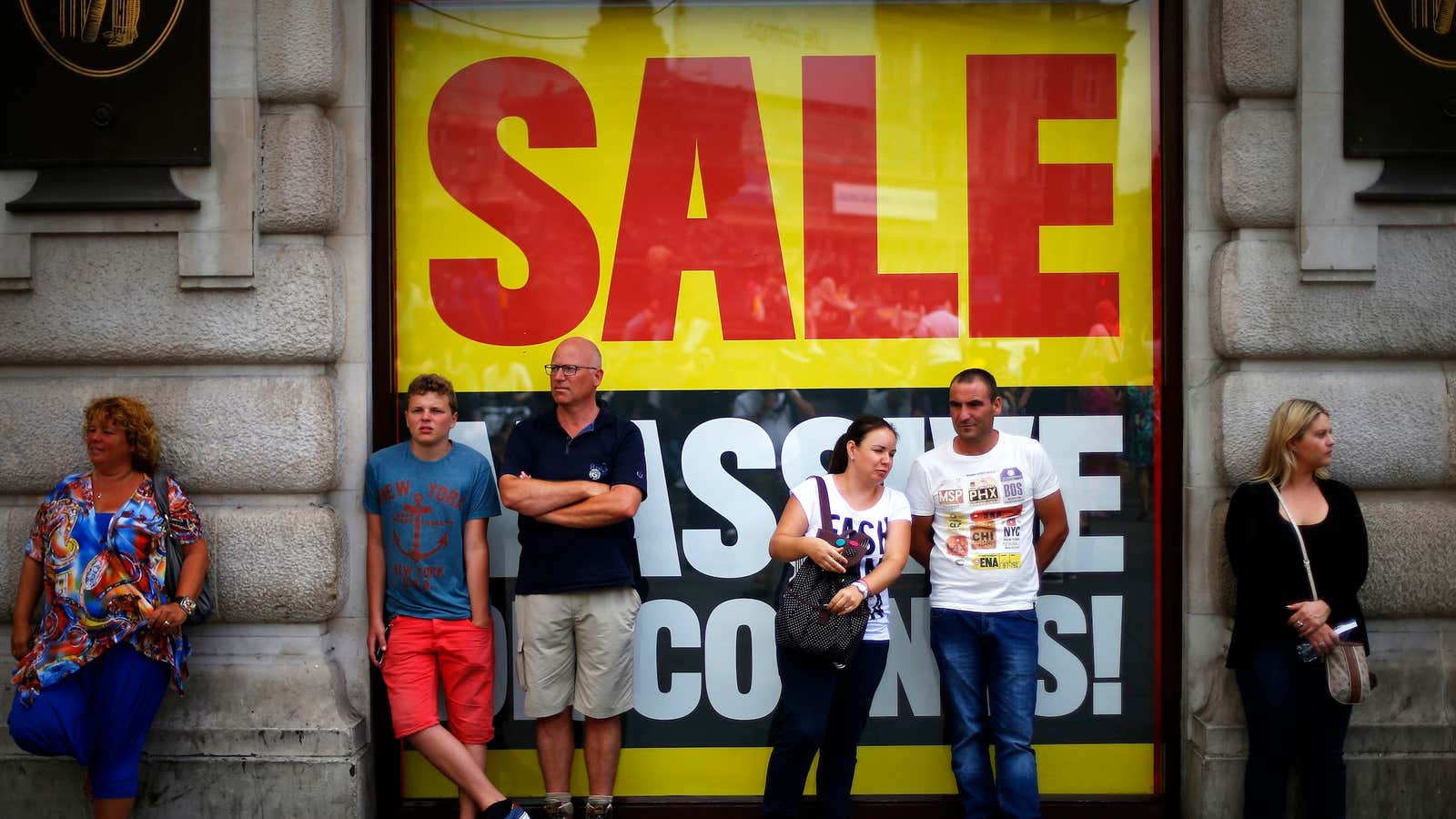Christmas is about families coming together at the end of the year to put aside our differences and be thankful for what we have. But more importantly, Christmas is about gifts: what are we giving, what are we getting, and “Thanks for breaking a five, how quickly can I return this?”
Fittingly, the British have invented a new term: Panic Saturday, the last major shopping day before everything shuts down and Christmas kicks in with full force. The Brits are expected to spend £1.2 billion ($1.9 billion) just today on shopping—that’s £21 million handed over every minute by 13 million people.
Britain is just getting used to this latest American import—crazy shopping days. There didn’t use to be a Black Friday in the UK, as the day after Thanksgiving has no significance in a country that doesn’t celebrate Thanksgiving in the first place. But it’s been growing as a day for shopping deals in Britain—and causing national shame, as a day when a usually-quite-polite people trample over each other and dodge falling televisions to get a bargain.
Then the following weekday, Cyber Monday, also took off in the UK. It coincided with the first Monday in December, when the last pre-Christmas pay check has been deposited into accounts. “The name was also a nod to online shopping being done at work,” The Guardian ruefully noted.
Panic Saturday, however, is a new one the British have invented all on their own. Why are they desperately searching online and hopelessly trudging about today, in the freezing cold to find gifts for a day we all knew was coming 365 days ago? It beautifully reflects the ancient British practice of leaving everything to the last minute, known as faffing.
And it’s big business. Reports suggest that in-store sales will reach £4.7 billion in the five days to Christmas—up a fifth from last year.
